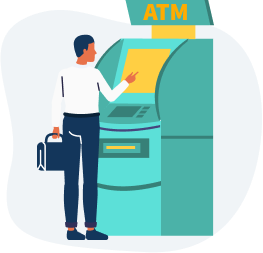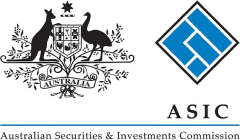Currency in Sri Lanka
A Travel Money Guide to Sri Lanka
Sri Lanka, the land of ancient misty hills, rolling tea plantations, jungles, safari plains and a vibrant cultural heritage, is an easy travel destination. Especially in terms of currency - it's easy to get money if you know everything you can about the local currency and payment options before you go.
The currency used in Sri Lanka
The currency everyone uses in Sri Lanka is the Sri Lanka Rupee. It has the international code LKR and the symbol Rs. 1 Sri Lankan Rupee is equivalent to 100 cents.
The official currency of Sri Lanka is also the Sri Lanka Rupee (LKR). Buying Rupees outside of Sri Lanka before your trip isn't advisable because it isn't a major currency you're probably not going to get a good rate outside Sri Lanka. There are plenty of places to exchange money, so the next best options to bring with you are Australian Dollars (AUD), US Dollars (USD) or Euros (EUR).
Money in Sri Lanka
The Sri Lanka Rupee currently have 5 coin denominations: Rs10, Rs5, Rs2 and Rs1.
Sri Lankan banknotes currently have 6 denominations: ₨20, ₨50, ₨100, ₨500, ₨1000 and ₨5000.
Do They Accept Australian Dollars in Sri Lanka?
Any bank or exchange bureau will exchange major currencies in cash, including US dollars (USD), Euros (EUR), British pounds (GBP) and Australian Dollars (AUD). However, most venues only accept payment in local currency.
Businesses are likely to factor conversion costs into their prices. So you would end up paying a far less favourable rate in Aussie dollars anyway, than if you’d just used the local money.
How much Sri Lankan Rupee or foreign currency can I bring into Sri Lanka?
You can only bring LKR 20,000 local Sri Lankan Rupees (approx. AUD$130) into, or take out of, Sri Lanka. Fortunately, there is no restriction on the amount of foreign currency you can bring.
It is advisable to only get a small amount of local currency in advance, because it will likely be at a very poor rate and bring foreign currency with you.

Using Your Bank Card in Sri Lanka
Most Sri Lankan businesses are well set up to receive card payments. Some of the best travel money cards include debit, credit and prepaid cards. But before you use your bank card willy-nilly, it’s worth reading up on the fees and charges you might incur.
Debit Cards
You’ll probably want a debit card if you plan to withdraw money from an ATM. While you may also be able to pay with a debit card in some businesses in the major destinations, you might discover some hefty fees on your account summary.
Depending on your bank, you could be hit with fees for foreign ATM withdrawals or currency conversions. But some banks are better than others; we recommend checking out Wise, ING and Revolut, all of which have travel-friendly debit cards that waive these charges.


Credit Cards
Credit cards can come with some enticing perks, including added security, loyalty programs, and even free travel insurance.
But are they worth it?
Major local businesses, including hotels, restaurants, airline offices, and department stores, accept credit cards. But you might have to pay a surcharge.
Mastercard and Visa are widely accepted. You may also be able to use your American Express card, though local ATMs won’t accept them.
Just be aware of additional charges you may incur for foreign transactions. These could include:
- International transaction fees
- High exchange rate margins
- ATM fees
- Potential ‘cash advance fees’ if you use an ATM
If you still prefer credit cards over any other payment, consider going with a company that offers cards that waive certain travel fees. Bankwest Platinum and 28 Degrees both have travel-friendly cards.
Prepaid Travel Cards
The biggest advantages of prepaid travel cards are that you can lock in a favourable exchange rate. You also get a handy back-up card.
Just remember that while they are convenient, you could end up paying a long list of hidden fees. Many travel cards still impose:
- Currency conversion fees
- Uncompetitive exchange rates
- International ATM withdrawal fees
- Initial load fees
- Reload fees
- Inactivity fees

How to Buy Sri Lanka Rupee Before You Go
There’s a certain reassurance that comes with stepping off the plane (or cruise ship) already cashed up with Sri Lanka Rupee.
Buying Sri Lanka Rupee before you leave Australian shores is convenient, but you can only bring up to LKR 20,000 with you into Sri Lanka. There are 3 main options to get your Sri Lankan currency in Australia.
- Buy LKR online and have it delivered or collect it in-store
- Swap Sri Lanka currency for Australian dollar from a money changer
- Buy your Sri Lanka currency at your home airport
Currency exchange offices at Australian airports are notorious for their poor rates and commissions so we recommend avoiding that option entirely.
You’ll easily find a bureau de change near you; even suburban shopping centres should have at least one. But it’s better to get your money from an inner-city bureau if possible. They have more competition, which is likely to drive their rates down.
If there’s already too much running around to do ahead of your trip, consider ordering Sri Lanka Rupee online. You can choose to have it delivered or made available for pick-up at a location near you.
Online orders are often the best value too, especially if you go with S Money, which offers the same rates listed on Google and XE.com.
The Average Cost to Travel Around Sri Lanka
To get the most out of your time in Sri Lanka, you’ll want to create a budget and make sure your savings stretch as far as possible.
To give you an idea of a reasonable budget, we’ve listed the average prices of some common items and experiences you’ll have while in Sri Lanka.
The average daily travel budget in Sri Lanka is about $70. Some of the expenses you might be looking at include:

$50
A room in a guesthouse

$5
Two-course meal at a nice restaurant

$2
A local beer

$4
Public Transport

$13
Museum entry
How to Exchange Currency in Sri Lanka
Places like Colombo, and Galle receive great numbers of tourists, so there are facilities to cater to money exchanges. Beyond these major destinations, it’s best to get cash before you venture into remote territory.

ATMs
We’re all used to getting our cash out at ATMs and it’s the most convenient way to secure local cash in Sri-Lanka, but maybe not the cheapest.
ATMs are easily found in towns and cities of any size, but they often issue larger Rs 5,000 bank notes. Go to a bank (usually next door) and break this into smaller denominations, because many vendors will not accept large amounts.
It’s worth noting that some ATMs are only accessible during the bank’s opening hours. And even when they are open 24/7, they might not necessarily offer the best value.
Depending on your bank, you may have to pay for overseas ATM withdrawals and currency conversions. To reduce the amount you’ll pay in fees, try to withdraw just the right amount of money you’ll need for the duration of your trip.
Don’t forget: Let your bank know you’re travelling! If they detect a foreign transaction but aren’t aware you’re overseas, they could end up freezing your card.
Currency Exchange in Sri Lanka
You won’t have any problem changing money in the city. It is most convenient to exchange cash into Sri Lankan currency at the airport before you begin your travels and the exchange rate is only slightly less competitive than money exchange bureaus or banks in the city.
But if you want to exchange your money at money changers, you can find these in Colombo and major tourist centres. Rates are more competitive, however, money-exchange scams are rampant so choose carefully. Avoid exchanging money at hotels, as you won’t get a competitive rate.
Change rupees back into hard currency before security at the airport prior to leaving, because even nearby countries don’t convert Sri Lankan Rupees to your domestic currency.


Travellers Cheques
Not worth the bother! Travellers cheques are so outdated, very few banks even accept them any more.
They can’t be used as direct payment, so the only way to use them once you’re in the country is to swap them for currency at a bank or bureau de change office. Even then, very few banks will accept travellers cheques if you don’t have an account with them. And exchange services apply exorbitant fees and rates to them.


